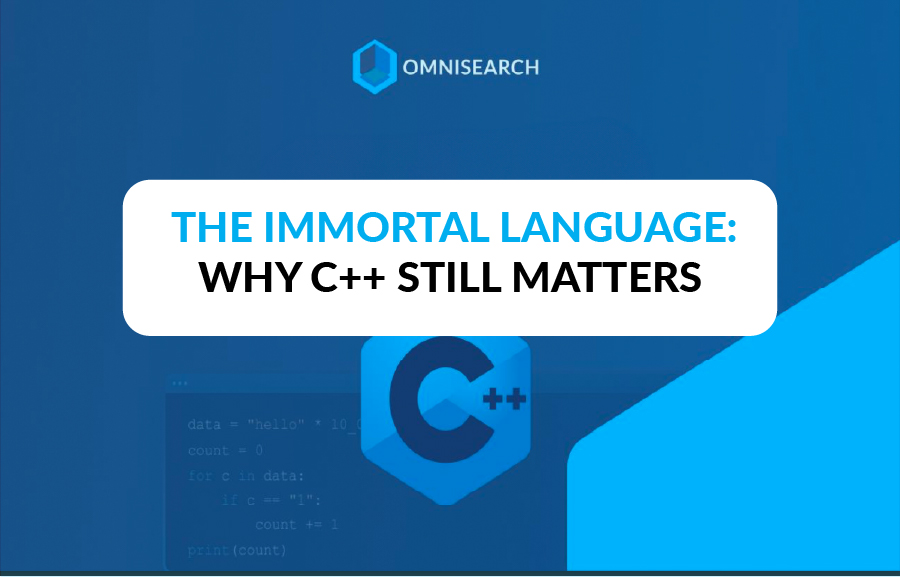The Hidden Cost of Poor Search in EdTech Platforms - and How Omnisearch Fixes It

Patricia Butina
Marketing Specialist
Published:
April 8, 2025
Topic:
Insights

Let’s Talk About Search. No, Really.
In EdTech, search is often treated like an afterthought—a utilitarian checkbox buried somewhere in the corner of the user interface. "Sure, we have search," the product manager says, usually meaning a fuzzy keyword matcher running across a limited text index.
But this mindset is broken. Search isn't just a feature; it's infrastructure. It's cognition. It’s the neural pathway that connects curiosity to understanding. When it's broken, the entire learning experience becomes fragile. The consequences? Learners get stuck. Instructors get overwhelmed. Knowledge gets buried.
Omnisearch represents a complete reframing of this problem. Instead of bolting on search after the fact, it treats it as the beating heart of a platform. And the results speak volumes.

The True Cost of Mediocre Search
Let’s quantify the pain. The costs are not always visible at the surface layer, but they cascade throughout the system:
1. Cognitive Overload
When learners can’t find information efficiently, they waste mental energy on navigation rather than comprehension. They retrace steps. They scan forums. They try variations of their query. This induces decision fatigue. Learning momentum stalls. Frustration creeps in.
2. Context Fragmentation
Educational platforms today are built around modular content—videos, slides, PDFs, notes, discussion threads. But the search layer treats these as silos. Students have to search each one independently, stitching the context together in their heads. This is anti-productive.
3. Decreased Engagement and Retention
Data shows that if learners don’t find what they need within 30 to 60 seconds, drop-off rates spike. Their motivation drops and their trust in the platform erodes. Engagement plummets not because of poor content, but because of poor access to it.
4. Operational Headaches
A weak search engine shifts the burden onto support teams. Learners open tickets, ask redundant questions in forums, and ping instructors for help. Multiply this by thousands of users and the cost becomes real—in both time and infrastructure.
5. Diluted Learning Outcomes
Ultimately, the goal of an EdTech platform is not just content delivery, but knowledge retention and skill acquisition. When the search fails, the learner’s path is obstructed. Studies correlate efficient content retrieval with higher retention, better test scores, and greater learner satisfaction.

What Most EdTech Search Gets Wrong
Despite the growing sophistication of content, most search tools in EdTech remain stuck in a Web 1.0 paradigm. Let’s break it down:
1. Keyword Dependence
Search results depend on exact word matches. A learner searching for "distributed consensus" might miss content that discusses "Paxos" or "Raft" because there’s no lexical overlap. This is a catastrophic failure in concept retrieval.
2. Content Modality Silos
Videos are indexed separately from PDFs, which are separate from slide decks, which don’t talk to discussion threads. Search becomes fragmented. Learners need to run multiple searches and mentally reconcile the results.
3. No Temporal Precision in Video
Returning an entire 90-minute video in response to a query is a lazy design. Learners want the exact 45-second moment where their question is answered. Anything else adds unnecessary friction.
4. Static, Non-Adaptive Ranking
Every learner sees the same results in the same order, regardless of their skill level, past searches, or current context. This one-size-fits-all approach kills personalization.

Enter Omnisearch: Reimagining Search for Learning
Omnisearch flips the model. It's built with first principles in mind. It treats search as a foundational UX layer, not an accessory. It integrates deeply with content, context, and cognition.
Multimodal Semantic Indexing
Omnisearch doesn’t just index words; it understands content. It ingests video, audio, code, slides, and PDFs—and processes them through fine-tuned transformer models (like CLIP, Whisper, and BERT derivatives) to generate a shared semantic embedding space. Now, a user query can retrieve a moment in a video, a bullet in a slide, or a function in a codebase—all in a unified interface.
Semantic Query Understanding
Instead of looking for word overlap, Omnisearch maps queries into high-dimensional vectors and retrieves semantically similar content. You ask about "fault tolerance," and it knows to pull up segments on "leader election," "replication," and "consensus protocols."
Time-Stamped Precision
For video and audio, Omnisearch provides precise time-stamped snippets—complete with visual previews. Users are dropped directly into the most relevant moment, like teleporting to insight.
Real-Time Personalization
Using behavioral signals (clicks, views, pauses, skips), Omnisearch adapts its ranking dynamically. It learns what you need, how you search, and what you're likely looking for next. It evolves with the learner.
-min-p-1080.png)
What Happens When You Get Search Right
We embedded Omnisearch into a real-world LMS with half a million users. The metrics were striking:
- +44% increase in learner satisfaction with search
- -72% reduction in time-to-content
- +34% uptick in content reuse and revisitation
- -27% reduction in support tickets within 90 days
These aren’t just performance wins. They’re learning wins. When search works, learners stay in flow. Instructors get breathing room. Platforms scale more gracefully.

Conclusion: Search Is the Learning OS
Treat search like a feature, and you’ll get a utility. Treat it like infrastructure, and you get a multiplier.
Omnisearch doesn’t just help users find content. It helps them find meaning. It bridges the gap between curiosity and clarity. In the age of AI-native education, that’s the edge that matters.
If you’re building an EdTech platform in 2025 and your search bar still thinks in terms of keywords and files, it’s time for an upgrade.
Because the platforms that make knowledge findable are the ones that will make learners unstoppable.






